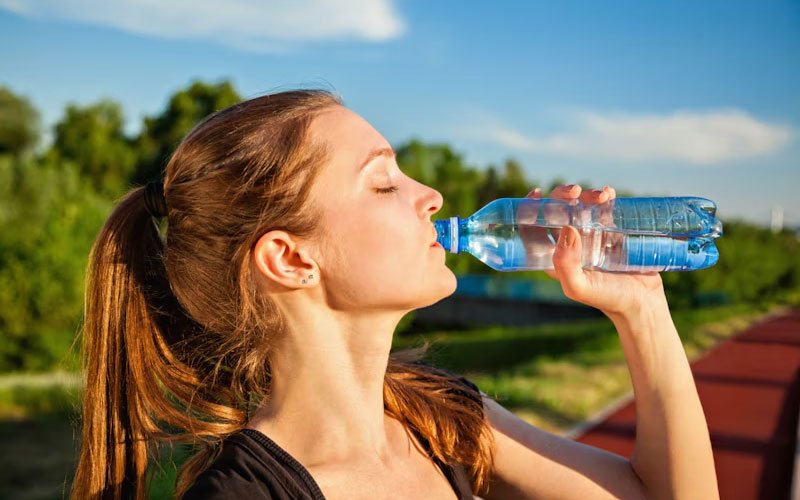You might have experienced the dread of drinking boring, tasteless water. Sometimes, drinking cheap bottled water leaves a strange aftertaste in your mouth and does not feel right. These are very unwanted experiences. You drink to feel refreshed, yet distasteful water can be frustrating. Maybe it is time to get yourself a water upgrade.
What to Expect from Your Drinking Water?
Water makes up about 60% to 70% of your body. Your major organs need water to function well. Contrary to the impression water does not have anything in it, you should expect a lot from water. Water should contain essential minerals like calcium, fluoride, iron, potassium, and sodium. Ensure that your body sources its necessities by getting premium mineral water.
1. Calcium
It is general knowledge that your bones need calcium. Your teeth also store calcium to give them structure. This mineral does not only benefit your skeletal health and dental health as the most abundant mineral in your body. Calcium is also integral to your other bodily systems, like circulatory, nervous, and muscular systems.
2. Fluoride
You may be familiar with fluoride as a content of your toothpaste. It should, interestingly, be a component of your water intake. Your toothpaste and water are partners in taking care of your teeth.
3. Iron
Iron is an important element to get oxygen transported through your bloodstream. Hemoglobin is a protein found in your red blood cells. Iron is needed in the production of hemoglobin.
4. Potassium
Potassium’s main role is maintaining the normal fluid level within your body cells. A common source of potassium is bananas. This mineral carries a small electrical charge, which triggers the functions of cells and nerves. Hence the name electrolyte. No wonder some professional athletes snack on bananas and do not neglect their water intake.
5. Sodium
Sodium is necessary in biological processes. The Royal Society Chemistry writes that this mineral aids in transmitting nerve signals and regulating the tissues and blood’s water levels. They further explain that the human body constantly loses sodium and needs to be replaced. A healthy source of your sodium needs is mineral-rich water.
What Happens When You Are Dehydrated?
If your water intake is not enough, your body will tell you. Initially, your mouth becomes dry. Headaches might occur afterward. Outwardly, your skin will look dull. Your moodiness and lack of focus could also be attributed to inadequacy in your body’s water needs.
Other major organ issues could also arise from not drinking enough. A Frontier Media-published study concludes that lower mortality risks can be associated with higher water intake. Do not wait till you feel thirsty. Drink periodically.
Should I Drink More Water to Get More Minerals?
Knowing the benefits of drinking water, you might think increasing your water intake alone is a good idea. You might even try to double the amount that you gulp down. Eight to twelve glasses is typically the suggested amount of water daily. Although water is good, it does not mean “too much.”
However, drinking huge amounts of water within a short period is a health risk. Hyponatremia or water intoxication occurs when too much water dilutes electrolytes and minerals in the blood. A sudden drop in sodium levels could cause the cells to expand. If the brain cannot keep up with the expansion, the worst-case scenario would be death.
If you want the benefits of drinking water, there are other options. Quality over quantity.
Is Tap Water Safe?
Generally, tap water in Australia is potable. Guidelines are set by the National Health and Medical Research Council (NHMRC). State and territory health departments, drinking water regulators, local health authorities, and water utilities use Australian Drinking Water Guidelines.
What is Mineral Water?
Mineral water is sourced from natural underground water reservoirs or natural springs. Mineral water can also be extracted from geologically protected aquifers. Also known as spring water, it contains high mineral content and requires minimal processing before being consumer-ready. Naturally occurring sparkling water is made when volcanic gasses dissolve in natural water wells and springs.
Be careful of the packaged water bottles in your convenience stores. Some mineral waters are produced by adding salts to distilled water. There is a difference between premium mineral water and artificial mineral water.
Tap vs Mineral
Research published in the National Library of Medicine was conducted by its proponents to study the mineral content variation between Australian cities’ tap drinking water and sparkling water. Higher levels of calcium, bicarbonate, and magnesium are shown in sparkling water on average.
Premium Mineral Water as a “Premium” Choice
Premium mineral water is created by processes that occur in nature without human intervention. Mineral composition could vary and be unique even among premium mineral waters because of the environment, like the rocks they run through. With such a choice, the typical water-drinking activity could be a radical addition to your health regimen.











